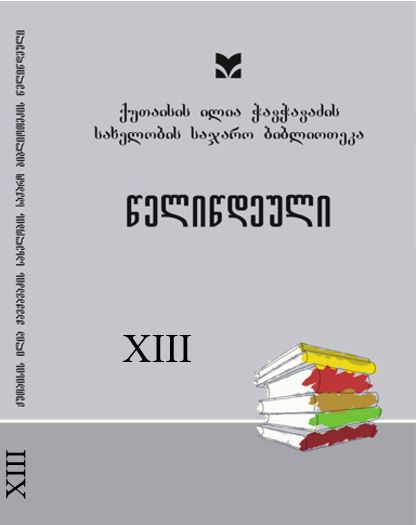For Phonetic Changes in the Writings of Barbare Jorjadze
DOI:
https://doi.org/10.48614/yk.13.2021.34-41Keywords:
Georgian Language, Kakhetian Dialect, Barbare Jorjadze, Phonetic ProcessesAbstract
Barbare Jorjadze is one of the prominent Georgian public figures. She was actively involved in the discussion of socio-political or literary issues in Georgia in the second half of the 19th century; She published publicist letters on women’s rights and education, Georgian language development, and literary topics, and she was engaged in creative activities.
She wrote poems, plays, and stories. She compiled and published 1874 „Georgian Cuisine and Family Household References“ (in addition to some Russian food). The book is important not only from a professional point of view (it is the first complete culinary textbook published in Georgian). But it is also interesting from a linguistic-cultural or ethnographic point of view. Because it somehow presents the linguistic picture of Georgia of that period, specifically the peculiarities of Kakhetian speech from different (phonetic, morphological, syntactic, lexical, stylistic) points of view. Barbare Jorjadze’s language is plain and natural. The author uses simple constructions. The linguistic specificity of its angle, and the dialectical features, are evident, which is clearly seen in the phonetic processes. The presented work analyzes the „Georgian cuisine“ compiled by Barbare Jorjadze, as well as her artistic work, and personal letters. The main tendencies of phonetic changes in relation to the Kakhetian dialect are shown. Barbare Jorjadze worked at a time when Georgian writers, under the leadership of Ilia Chavchavadze, were actively fighting to bring the literary language closer to the vernacular. There were no uniform norms of literary language, which was clearly reflected in Barbare’s work.




